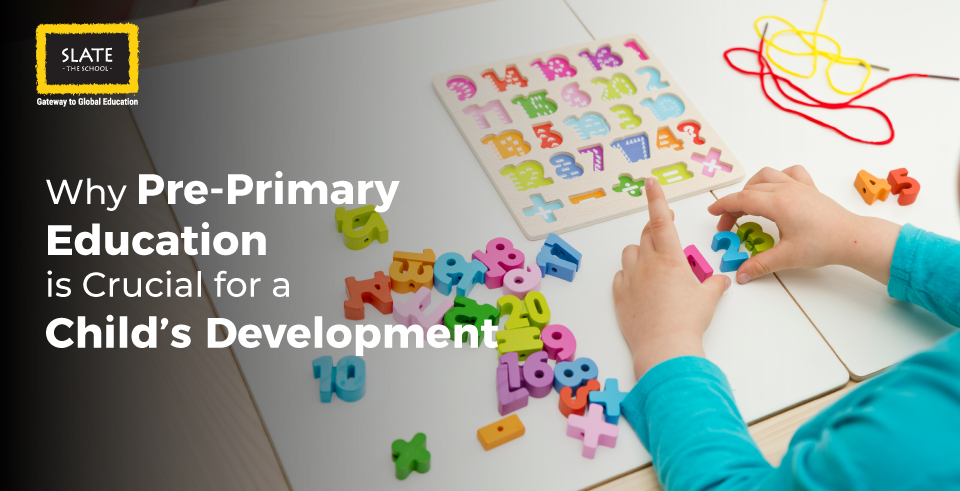In today’s fast-evolving world, pre-primary education for children is no longer a mere option—it is an essential foundation for lifelong learning and growth. The early years of a child’s life, typically from ages three to five, are marked by rapid cognitive, emotional, and social development. Enrolling children in Preschool Education for Kids during this formative stage plays a vital role in shaping their personalities, skills, and future academic success.
Laying the Foundation for Lifelong Learning
The importance of pre-primary education cannot be overstated when it comes to establishing a child’s learning abilities. During these early years, the brain forms critical neural connections, making it the ideal time to introduce fundamental concepts such as language, numbers, and problem-solving.
Research indicates that children who attend quality pre-primary programs are better prepared for formal schooling. They display higher literacy and numeracy skills, enhanced creativity, and greater adaptability to structured learning environments. This early exposure to basic academic concepts gives them a significant advantage in their future academic pursuits.
Developing Social and Emotional Skills
Beyond academics, pre-primary education for children fosters social and emotional growth. For many children, preschool is their first experience of being away from home for an extended period. Here, they learn how to interact with their peers, share, take turns, and resolve conflicts—skills that are essential for healthy social relationships throughout life.
Moreover, being in a structured environment helps children regulate their emotions and develop self-confidence. They learn to express their feelings, practice empathy, and understand the importance of cooperation—all of which contribute to their emotional intelligence.
Enhancing Cognitive and Motor Skills
Preschool Education for Kids also plays a key role in boosting cognitive and motor skills. Activities such as puzzles, building blocks, and sensory play enhance problem-solving abilities and hand-eye coordination. Painting, cutting, and other creative exercises refine fine motor skills, preparing children for writing and other school-related activities.
Additionally, exposure to age-appropriate learning materials encourages curiosity and critical thinking. Children begin to explore the world around them, ask questions, and develop a love for learning—a trait that stays with them for life.
Building Communication and Language Proficiency
Language acquisition is another significant benefit of pre-primary education for children. During this stage, children experience a remarkable expansion of their vocabulary and language skills. Engaging in group activities, storytelling, and interactive play helps them improve their speaking, listening, and comprehension abilities.
In multilingual regions like Hyderabad and Andhra Pradesh, pre-primary schools often introduce children to more than one language. This exposure not only enhances communication skills but also boosts cognitive flexibility, which benefits them academically and socially in the long run.
Installing Discipline and Routine
Attending a pre-primary school introduces children to structure and discipline. Following a daily routine—including playtime, learning sessions, and nap times—instils a sense of order and responsibility. These routines teach children the importance of time management and organization, which are essential skills as they progress through their academic journey.
The Role of Parents in Pre-Primary Education
While pre-primary schools play a significant role, parental involvement is equally crucial. Parents who actively engage with their children’s learning process—through reading, creative activities, and open communication—reinforce the concepts taught in school. This partnership between parents and educators ensures holistic development, laying a strong foundation for future learning.
Also Read: Importance and Benefits of Parent-Teacher Meetings at School
Choosing the Right Pre-Primary School Matters
When it comes to early education, selecting the right institution is key. Parents seeking the best pre-primary schools in Hyderabad or the best pre-primary schools in Andhra Pradesh should consider factors such as curriculum, teaching methodology, infrastructure, and the overall learning environment. A school that offers a blend of academics, creativity, and play-based learning can significantly impact a child’s early development.
Slate – Nurturing Young Minds with Care and Excellence
For parents in Telangana and Andhra Pradesh, Slate – The School stands out as a trusted name in pre-primary education. With branches in both Hyderabad and Andhra, Slate offers a nurturing and stimulating environment where children thrive. Their innovative curriculum blends academics with creative learning, fostering curiosity, confidence, and resilience.
At Slate, the focus is on equipping children with essential skills through interactive learning, hands-on activities, and personalized attention. The school’s commitment to early childhood education ensures that every child receives the best possible start, making it one of the best pre-primary schools in Hyderabad and Andhra Pradesh.
Conclusion
The importance of pre-primary education cannot be emphasized enough—it shapes a child’s cognitive, social, and emotional abilities, preparing them for lifelong success. Investing in pre-primary education for children is not just about academic readiness—it’s about building confident, curious, and compassionate individuals.
For parents seeking a quality preschool experience, Slate – The School offers an enriching and empowering environment that nurtures children during their crucial early years. Enrol your child in one of the best pre-primary schools in Andhra Pradesh or Hyderabad and give them the perfect foundation for a bright future.

